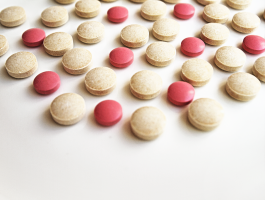
A new research perspective was published in Oncotarget's Volume 14 on April 14, 2023, entitled, “Cancer prevention with rapamycin.”
The mTOR (Target of Rapamycin) pathway is involved in both cancer and ageing.
Furthermore, common cancers are age-related diseases, and their incidence increases exponentially with age.
In his new research perspective, Mikhail V. Blagosklonny, M.D., Ph.D., from Roswell Park Comprehensive Cancer Centerdiscusses rapamycin and other rapalogs and their potential to delay cancer by targeting pre-cancerous cells and slowing down organismal ageing.
“Rapamycin (sirolimus) and other rapalogs (everolimus) are anti-cancer and anti-ageing drugs, which delay cancer by directly targeting pre-cancerous cells and, indirectly, by slowing down organism ageing.”
Cancer is an age-related disease and, figuratively, by slowing down time (and ageing), rapamycin may delay cancer.
In several dozen murine models, rapamycin robustly and reproducibly prevents cancer.
Rapamycin slows cell proliferation and tumour progression, thus delaying the onset of cancer in carcinogen-treated, genetically cancer-prone and normal mice.
Data on the use of rapamycin and everolimus in organ-transplant patients are consistent with their cancer-preventive effects.
Treatment with rapamycin was proposed to prevent lung cancer in smokers and former smokers.
Clinical trials in high-risk populations are warranted.
“Currently, an increasing number of healthy people use rapamycin off-label to slow down ageing. Perhaps in ten or twenty years from now, data will accumulate for retrospective analysis of cancer-prevention with rapamycin in humans.”
Source: Impact Journals LLC
We are an independent charity and are not backed by a large company or society. We raise every penny ourselves to improve the standards of cancer care through education. You can help us continue our work to address inequalities in cancer care by making a donation.
Any donation, however small, contributes directly towards the costs of creating and sharing free oncology education.
Together we can get better outcomes for patients by tackling global inequalities in access to the results of cancer research.
Thank you for your support.